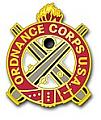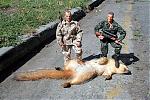By some estimates, at least 5 million Congolese have died in more than a decade of conflict touched off by the 1994 genocide in neighboring Rwanda, which sent a flood of militiamen across the border into mineral-rich eastern Congo. Although the conflict has surged, receded and changed over time -- at points involving eight countries and at others breaking into smaller conflicts among a mess of armed groups -- the cumulative death toll in eastern Congo is the largest since World War II.
For the most part, though, people in eastern Congo have not died in a blaze of bullets or large-scale massacres. More often, the conflict has set off a chain reaction of less spectacular consequences that begins with fleeing through an unforgiving jungle and ends with deaths such as Mihigo's. In eastern Congo, people die from malaria and diarrhea, from untreated infections and measles, from falling off rickety bridges and slipping down slopes, from hunger and drinking dirty water in the hope of surviving one more day.
Arguably, people die because of the wider social impact of the conflict. Entire villages have been scattered across hundreds of miles, atomizing extended family networks that people depend upon in difficult times. The conflict has overwhelmed already-dysfunctional government hospitals and left roads rutted and overgrown, isolating people in villages like Walikale from help.
At the moment, the conflict in eastern Congo is surging once again. Since January, at least half a million people have fled a U.N.-backed Congolese army operation targeting Rwandan rebels, which Secretary of State Hillary Clinton is expected to discuss in a visit to Congo this month. The rebels are retaliating against villagers with whom they have lived for years.











 )
)


Bookmarks